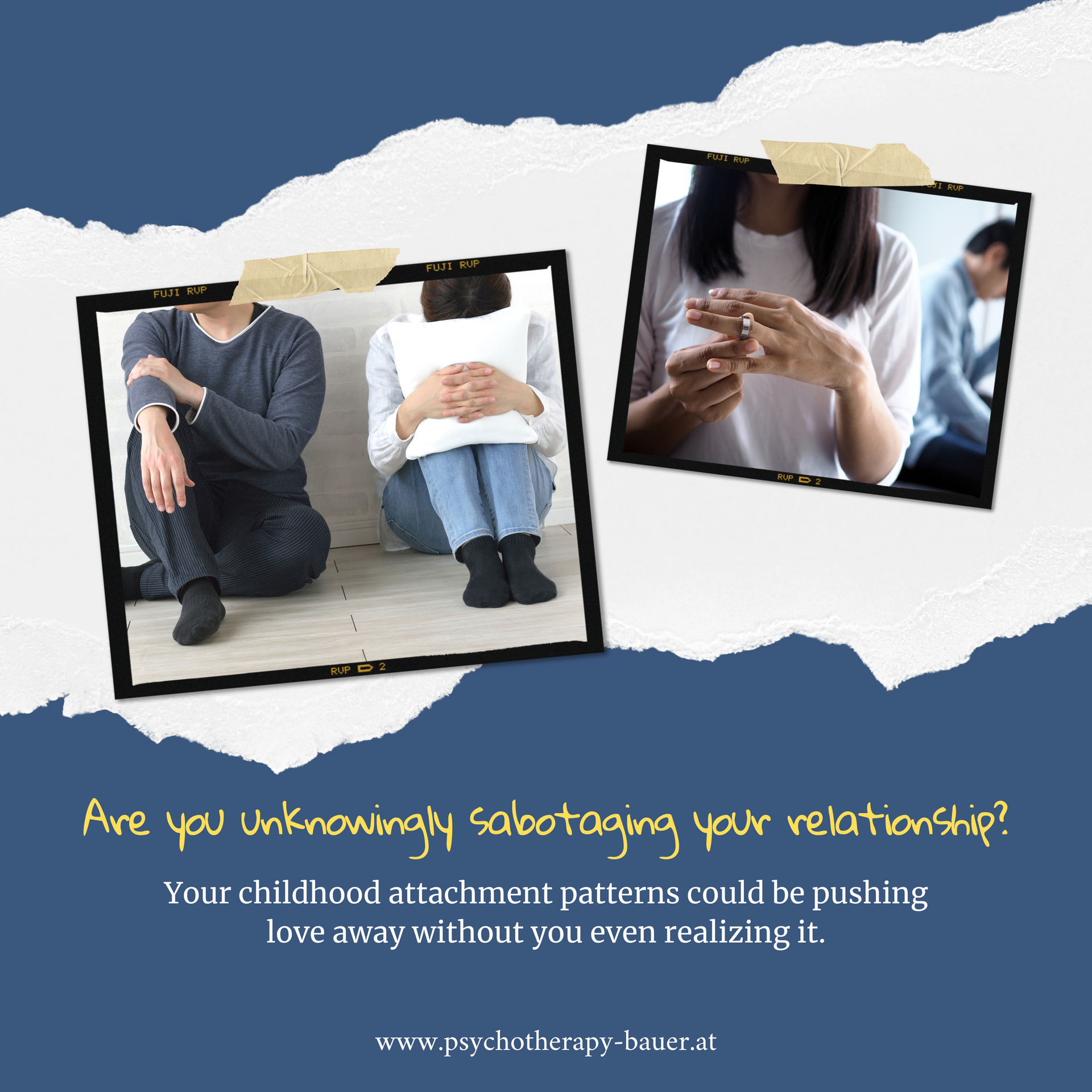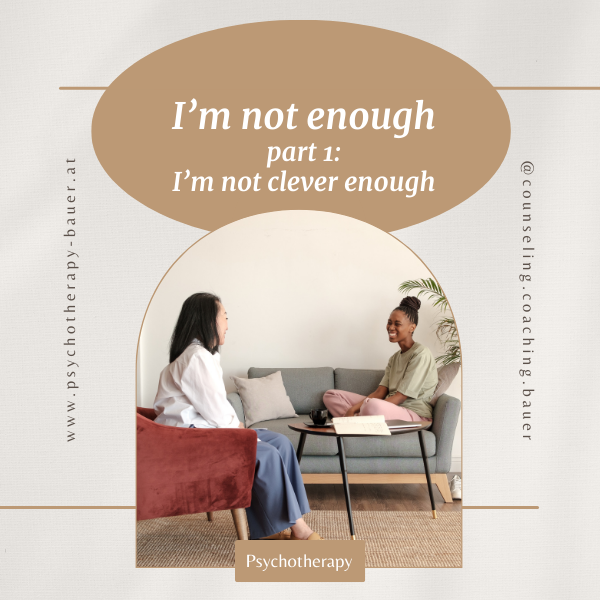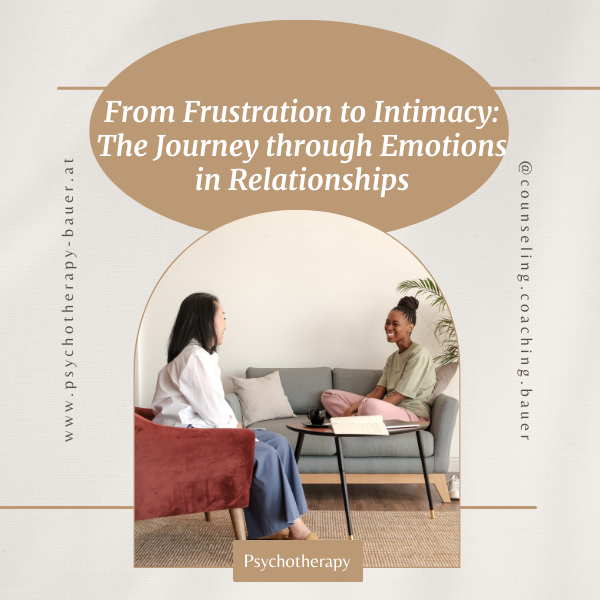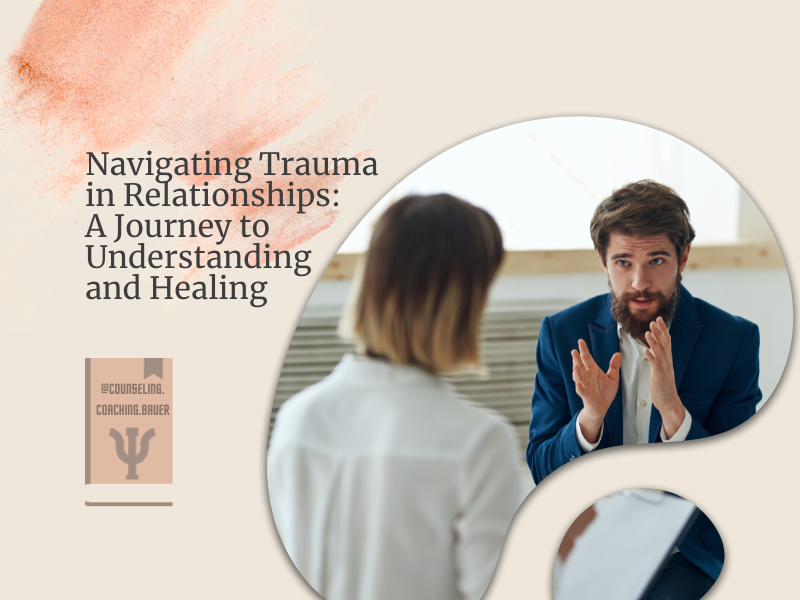How to make a decision when you don't know what to do
4 practical ideas for making complex decisions
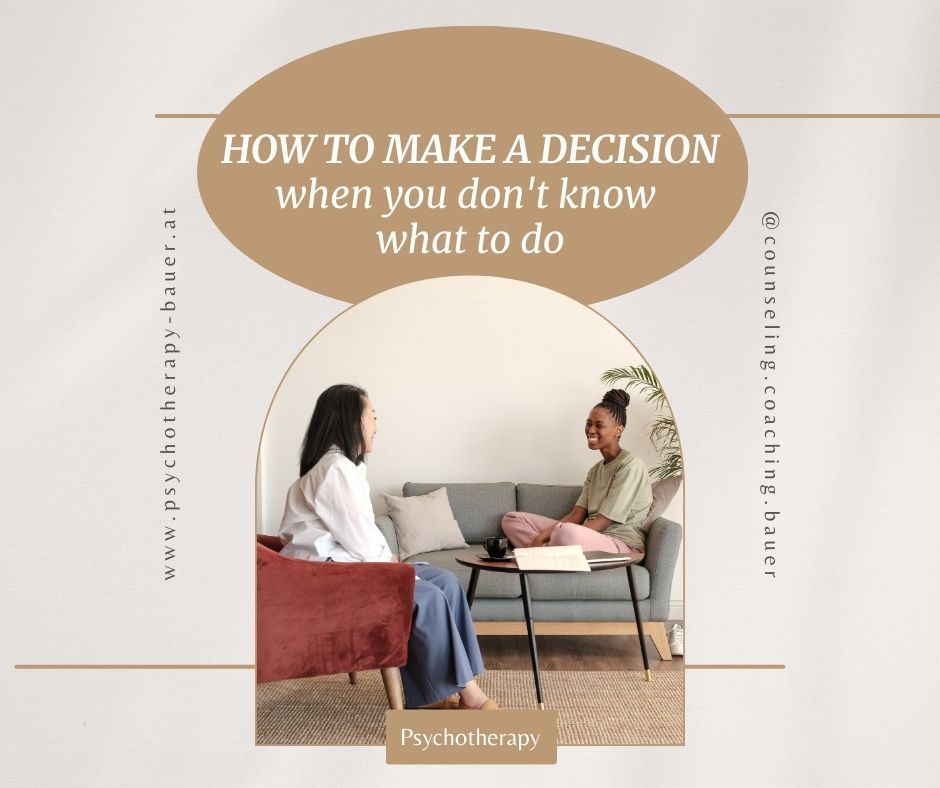
The good news is – you’re not on your own and there is some help out there. Actually, there’s so much help that I felt the need to put it straight. It turns out that I have been struggling with making decisions myself, and I've worked my way through. So, I will let you know four practical ideas that have been helpful to me when facing hard decisions.
Practical help for making decisions
Before we start working on making decisions, make sure you are in a relaxed state of mind. No matter how you move on from here, in case you get stressed out, please take a break and come back when you feel more at ease. Our brain is not capable of finding clever and creative solutions when we’re stressed out. This procedure is important for handling any conflict or personal work.
1. Check in with your future self
Let’s take a little journey into the future (use your time machine) – and move straight forward to 2033. Picture your future self. This future version of you is deeply enjoying their life and full-heartedly satisfied, whatever that means for you.
Got that mental image? Now, see them smiling at you, beaming with a whole load of love, like the warmest, fuzziest hug you can imagine between two people. Oh, and guess what? That person is YOU, the ultimate version of you. And you’re hugging and are hugged at the same time.
Oh, and here's the most important part – this future you, they've been there, done that. They've been through everything you've been through in your journey so far. And guess what? They love you unconditionally and cheer you on no matter what twists and turns you're facing.
Now, let’s talk to them. Grab your trustworthy journal or phone app – doesn't matter where. Chat them up about what's troubling you right now. And let them know all about your choice that's got you caught in a decision-making tangle.
Here's the prompt: ask them for advice. Like, “Hey, what's your take on this?” How would you handle this? Handling it your way - with style, grace, and a sprinkle of fun? Yeah, we're talking about embracing your quirks and all the unique messy stuff that makes you, well, you.
Finally, take your time to listen. Whether you're having a chit-chat in your head or you're expressing it creatively, let their advice sink in. Capture every word they whisper in your ear or the music they ask you to listen to. Be aware of your intuitive insights and watch out in case their language are images. You can even make it a back-and-forth communication if you like. Just keep that trust alive and well.
You've got this – with a little help from the seasoned pro version of you.
2. The Fearless Approach: Embracing Mistakes
Did you ever realize that more often than not we’re afraid of making mistakes?
That’s understandable because caregivers want to protect their children from harmful mistakes. So, they protect the child’s life, but they also may transmit their fear to the child. In a way, further along in life, the fear will protect the child’s life. In a few situations, that’s appropriate and reasonable. While growing up, we usually learn how to handle a lot of dangerous situations. We can cope with them successfully and handle them without second thoughts. Just imagine how parents keep their toddler away from the streets, and you navigate effortlessly through traffic.
But did you notice that it’s not always this way?
Did you start doubting while reading and think, “well, but I am afraid of visiting observation desks”? Or you’re afraid of spiders, fires, the open sea, caves; there’s an endless number of things we can be afraid of as adults, and it will hardly impact our life.
But imagine the following conflict: you get to meet your future dream-partner on top of the observation desk. Would you take the chance? It may open up a great opportunity...
This very same logic follows this question: "If you had no fear of making any mistake, what would you do then?"
It opens up to more opportunities. And if that sounds really intimidating, I want to add: later, there will be still enough time to consider risks and side effects. There are some very effective ways of dealing with fear, and it’s actually not as big of a deal as it pretends to be. So it’s reasonable not to let fear pressure you into any important decision. That’s what this quote is about, “Being brave doesn’t mean you aren’t scared. It is being afraid and doing it anyway.”
I assume not only great historical figures, who have moved the world, followed this prompt. But presumably you did so as well, in times and moments you took life-changing steps. Do you remember your first job-interview? I guess that was scary, as well as any meaningful exam you took. It could have been an initial therapy session, or facing any other traumatic experience instead of avoiding it.
So, I tried to deal with the idea of having fear – and yet there’s another meaningful word left to notice: “mistakes”.
What comes to your mind when you hear this word? Confusing America with India? Creating a wonder-drug and ending up with penicillin? The list is ongoing, and you get the point, and you get to see the questionable definition of mistakes.
Even if you prefer to zoom into the situation: do you remember when some mistake has taught you a lesson? I would even argue that’s the only way we learn. Do you know that people naturally respond to baby tongue and their overload of speaking-mistakes? And kids turn out with a proper speaking skills indeed. Look, it seems like people are inherently programmed to deal with mistakes and make good out of it. It’s worth trusting in your ability to deal with and learn from mistakes.
3. The Knowledge Box: A Tool for Complex Decisions
This "knowledge box" technique is especially helpful when the subject is complex, confusing, or even overwhelming. On one hand, we have a profound knowledge about the topic – we are, so to say, “ready” for making an informed decision. But there’s so much more to know about that we’re possibly missing out on.
You can already see a little fear of missing out, glimpsing through the lines. Yes, that can not only impact our social life but our decision-making process as well. Like in social life, it’s not necessary to join every single gathering – it’s not necessary to gather endless amounts of information for making a decision either.
Guess what: once more, your subconscious mind or inner experience, inner voice or however you want to label it, is helping you out. As you may know since your last chat with Dr. Freud – their capacity is much bigger and faster than anything you juggle in your analytic processor. That’s why I suggest shifting the scene of crime and letting the most capable part do their work. I will introduce you to an exercise to allow the shift:
Please imagine putting all the knowledge you already collected into a box.
It’s a safe box as little or large as you want, in any case, it should be unique and fitting the occasion.
Now, please add all the information you could already gather as well as the information you’re still lacking into the box. Then add as well all the sensations related to the box. Does the topic smell? Is any music describing it really well? Is it especially heavy or rather wobbly and fuzzy? As you may have expected, I won’t let you off the hook without checking on possible emotions. In what direction does it belong: sad, angry, afraid, joyful? And then more precisely. You may want to use the feelings-wheel or whatever helps you to figure out your emotions. Eventually, please add them into the box.
Is everything packed by now? How do you feel at this moment?
We’re not done yet, just a little check-in.
Is it somehow relieving, or anything else coming up? If so, just acknowledge it and it goes into the box as well. When you feel complete, probably much calmer and lighter than before, close the box nicely and find a good place for it.
Place it at a suitable distance from you. You should feel comfortable facing the box, in case it keeps crowding you, please expand the distance.
Now sit down opposite the box and see what’s coming up inside of you when you watch it. Please check first and foremost on your body sensations in your chest and stomach. Take your time and be patient until you’re well, resonating with the box. Your body sensations are likely to be fuzzy and unclear at the beginning. Yet welcome them and stay with them. When they get clearer, see if you could capture the sensation in a picture.
Finally, is this picture providing any wisdom related to your decision?
I’d encourage you to resist unpacking the box for a while. Instead, come back and check in with your resonance to the box the next day again. Sleep on the box. And see what changed.
4. Sleep on it: give your mind some space to process
This common advice to sleep on it and decide afterward is actually really clever. Our brain reprocesses all the information, emotions and knowledge we have overnight. It comes up with helpful solutions. We can sometimes witness their organizing process in the form of dreams. Sometimes we wake up with intense feelings or a slightly mysterious mood.
This is all a kind of side effect of our brain's work. And it does powerful work, preferably on its own. So, first and foremost, it doesn’t want to be disturbed while it's working. That means taking enough time for sleeping deeply.
And there’s some more you could do. Have you ever noticed that after certain activities, you are more likely to remember vivid dreams or intense thoughts? Most likely, that’s after you have been processing some important material during the day. That can be by talking about it. So, therapy sessions sometimes cause the mind to do some heavy lifting during the nighttime. It’s not just therapy, but any intense and deep engagement with the topic on an emotional level will help the mind.
There are several ways to reach this deeper level of engagement:
- You could write the question you want to get answered on a note beside your bed
- You could journal about the topic
- You could draw or sing about the topic
- You could talk to a friend – preferably they take the job of listening well without giving advice
If you engage in those tasks before falling asleep, it is pretty likely that your mind will continue to work on their own. It performs their special ability to organize and reprocess a lot more information than you can handle awake.
If you want to do your mind a favor while thinking during the day – some physical bilateral activity, like knitting, juggling, playing an instrument or even swimming may help. And if you keep it simple, just go for a walk instead of sitting at home while struggling with your thoughts.
Conclusion
In the journey of life, every decision, big or small, plays a crucial role in shaping our way. From choosing the perfect PlayStation to more profound dilemmas, decision-making is an art that many of us grapple with. In this blog, we've explored three strategies to navigate the maze of decision-making.
Firstly, we embarked on a journey into the future to meet our wiser, more experienced selves. By seeking advice from our future selves, we gain invaluable insights into our choices. This exercise encourages us to trust in our own wisdom.
Embracing our mistakes becomes a powerful tool in the decision-making process, for it's through our errors that we truly learn and grow.
The "knowledge box" technique emerged as a valuable resource for tackling complex decisions. Instead of drowning in an overload of information, we pack all our knowledge and emotions into a metaphorical box. This exercise allows us to distance ourselves from the overwhelming sea of data, providing clarity and perspective. The knowledge box method enables our subconscious to work its magic, helping us uncover the right path.
Lastly, we explored the wisdom of sleeping on decisions. Our brains, ever the diligent workers, continue to process information while we rest. I handed out this advice because giving your mind space to process can yield surprising solutions.
In conclusion, making decisions is an art, and like any art, you can learn it with practice and the right techniques. Whether you have to make a life-altering choice or pondering the best PlayStation to buy, remember these strategies.
As we've explored decision-making together, it's clear that life often comes up with challenging choices. If you find yourself spiraling with tough decisions, remember that you don't have to face these challenges alone.
Therapy offers a safe and supportive space where you can gain clarity about your choices. It's a journey to your inner wisdom and finding the confidence to make choices that align with your values.
If you're ready to embark on this transformative journey, consider reaching out to me. I’m here to help you navigate the twists and turns of life with compassion and expertise. Therapy can be the guiding light on your path to personal growth and fulfillment.
Take the first step and drop me a message.

